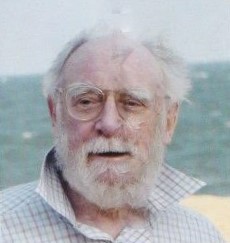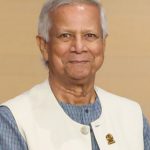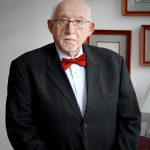From friend and colleague Michael Berendt:
In 2013 Roger Broad published The Radical General, a biography of Sir Ronald Adam.
It’s the story of a professional soldier, Adjutant General in the British Army from 1941 until 1946, who transformed methods of officer selection and introduced adult education for British troops for the first time. Sir Ronald was an ideal subject for Roger, intellectual, imaginative – and radical, much like Roger himself.
It is no surprise that Roger had done his national service in the Army Educational Corps.
Roger died on August 17 2017 after a full life as journalist, historian, author and EU official.
After leaving Queens College, Oxford in 1954 he wrote for the Birmingham Post and the Financial Times and also became editor of the Labour Committee for Europe quarterly journal.
In 1965 he moved to Luxembourg with his wife Sarah to edit the European Commission’s English language magazine. He subsequently moved to the Commission’s London office as press officer and in 1967, jointly with Bob Jarrett, he published Community Europe, his first venture as an author.
In 1968 Roger became a much valued founder member of the UK branch of the AEJ (Association of European Journalists) which campaigns for media freedom across Europe and has brought together journalists with a special interest in Britain’s place in Europe. His membership of the Reform Club also dates from this period.
On Britain’s accession to the EC in 1973 and in the face of a Labour boycott, Roger became head of the European Parliament’s new office in London, with all the challenges of dealing, first with the sensitivities of the newly nominated UK members of the EP, including several hereditary peers, then with their directly elected successors. He stayed in post until 1986.
His books will be an enduring legacy. All his experience of the Labour Party over more than 30 years led to the publication in 2001 of Labour’s European Dilemmas, a history of Labour’s turmoil during the stormy years “from Bevin to Blair”, as the book is subtitled, and spiced with telling cartoons from the period by Low, Vicky and Garland.
Roger’s historical skills next turned to WW2, with Conscription in Britain 39–45, published in 2006, and then in 2013 The Radical General: Sir Ronald Adam and Britain’s New Model Army 1941-46. Roger’s admiration for Sir Ronald and the general’s remarkable achievements in modernising the military is evident throughout the book. Indeed the idea that education of the troops may have been responsible for Attlee’s election victory in 1945 may be disputed, but certainly triggered a frisson of pleasure for the author.
In his latter years Roger did have health issues, but his last book was published in 2016 despite such difficulties. It was Volunteers and Pressed Men, an analysis of Britain’s extraordinary and often forgotten dependence on the Commonwealth and Empire troops who fought for this country through two world wars. Roger saw this as a remarkable story which had not been properly told. It was typical of him to highlight the personal sacrifices it meant for millions of men and women across the world.
From former AEJ UK secretary Kevin d’Arcy:
“Roger was one of our nicest, most positive and valuable members … [who] “reappeared soon after I became the section secretary.
This was extremely lucky for us, as the contacts he had developed in Brussels, Strasbourg and Whitehall proved essential to raising support for the AEJ generally, but especially for the annual congress which I had offered to organise in London in 1992. Luckily, we managed to form an organising committee with an impressive flex of muscle, including Roger, the younger Paul Hodgson (then our chairman) and Gerry Mansell, former director of the BBC World Service.
Roger, thank goodness, agreed to become our section’s first treasurer, thus removing the care of cash away from my function of spending it. Roger said afterwards that this was probably not only the biggest, but also the first ever congress not to show a loss … which showed just how valuable he was.”
Please see Roger’s 40th anniversary remembrance of the birth of the AEJ UK and his own story of how to get published here.








